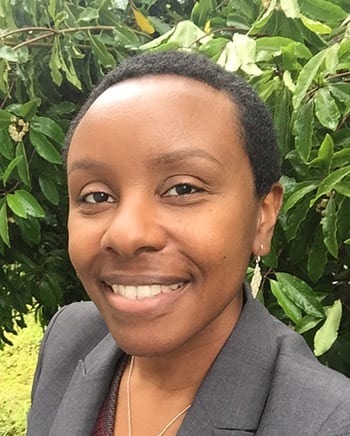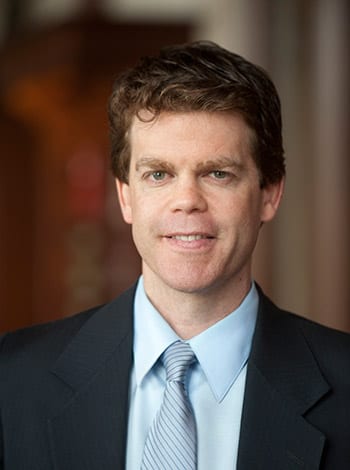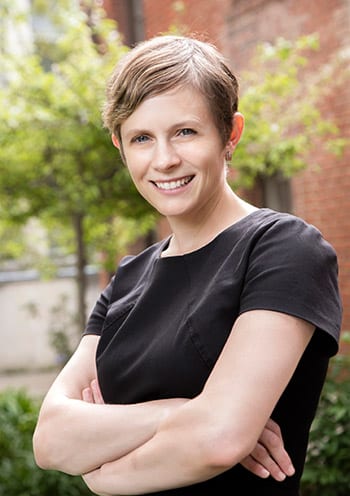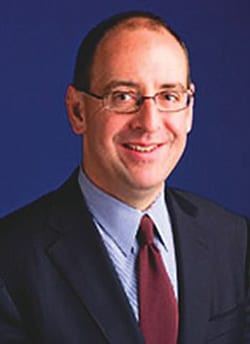By Andrew Cohen
For Abbye Atkinson, Adam Badawi ’03, Joy Milligan, and Frank Partnoy, their lofty opinion of Berkeley Law’s faculty sparked a powerful incentive to join it.
Atkinson called her new cohort “unmatched in its intellectual depth and range.” Badawi said “the faculty was a huge part of what drew me back to Berkeley.” Milligan noted that “there’s no law school faculty I admire more.” Partnoy called the business law faculty “among the very best in the country.”
Atkinson, Badawi, and Milligan officially began their positions this week, along with new dean Erwin Chemerinsky, and will begin teaching this fall. Partnoy will join the faculty in 2018.
Versatility personified

Atkinson’s new gig represents a homecoming of sorts. A Stanford Law School fellow and lecturer, she earned her undergraduate degree in Dramatic Arts at UC Berkeley—where she was a Regent’s Scholar and received the Mark Goodson Prize for distinction in the performance arts.
At Harvard Law School, she was a research assistant to Professor Elizabeth Warren, now a U.S. senator, on a consumer bankruptcy project, and a teaching assistant in her Bankruptcy Law course.
“She was a master teacher who always encouraged me to think about the law’s real-life implications,” Atkinson said. “That’s been a huge influence in how I’ve approached my scholarship.”
Atkinson has enjoyed a rewarding and varied career, working as a special-education teacher, a clerk for two federal judges, and an associate with Gibson Dunn & Crutcher in San Francisco. At Stanford, her research probed bankruptcy law’s impact on the economically vulnerable.
“Bankruptcy Law concerns itself with helping people who are in a precarious financial position rebuild themselves,” she said. “We often think about that in a middle- or upper-class context. But if bankruptcy is an important mechanism to let people reboot financially, why does it exclude people on the lower end of the socio-economic spectrum—people whose financial troubles are often borne of bigger social issues?”
Atkinson, who will teach Contracts and consumer law courses, also looks forward to joining Berkeley Law’s growing group of scholars and students working on consumer justice issues. “It’ll be great to get involved in that community,” she said.
Homeward bound

While he enjoyed his two years as a University of Chicago law fellow and lecturer and seven years as a professor at Washington University of St. Louis, Badawi—who earned three degrees from UC Berkeley—relished a chance to come back.
“There’s nowhere like it,” he said. The prospect of joining the business law program, which he says is “influential, energetic, and thinks about research and teaching in innovative ways,” made returning to his alma mater “an easy decision.”
Badawi clerked on the U.S. Tenth Circuit Court of Appeals and practiced at Munger, Tolles & Olson for before entering academia. His research focuses on shareholder litigation, how boards operate, and the interplay between debt contracts and corporate governance. A current project explores the influence lawyers and law firms have on the public disclosures they help draft for clients.
“What draws me to business-related research is the importance that effective corporate governance has for producing growth and employment in our economy,” said Badawi, who will teach Contracts and business law courses. “It helps that there are massive amounts of data available on how firms and corporate governance interact.”
Currently co-writing a Business Associations casebook, Badawi wants his students “to think about how lawyers can improve deals rather than just win the litigation that results when those deals turn problematic … I know the Berkeley student body’s love of intellectual engagement and commitment to its ideals will never go away. That makes for a dynamic classroom and I can’t wait to be a part of it.”
Familiarity breeds respect

The more Milligan interacted with Berkeley Law’s faculty, the more she wanted to join it. “The depth and diversity of their work is truly world-class,” she said.
Her research considers the impact of American law and political institutions on entrenched inequality, specifically how the civil rights movement links with the administrative state’s institutional design. One recent project compared the trajectories of racial and religious discrimination in the Supreme Court’s constitutional jurisprudence.
“The fundamental question in civil rights law is why do we still see so much entrenched inequality— particularly racial inequality after the ‘Civil Rights Revolution?’” Milligan said. “Why has law not been more effective in bridging this gap? That issue underlies my research.”
Currently finishing her Ph.D. in Berkeley Law’s Jurisprudence and Social Policy Program, Milligan has earned degrees from Harvard (undergraduate), New York University (J.D.), and Princeton (Master of Public Administration). After law school, she worked for the NAACP’s Legal Defense & Educational Fund and clerked on the U.S. Ninth Circuit Court of Appeals.
Looking ahead to teaching Civil Procedure and a survey course in antidiscrimination law, she values a pragmatic approach. “In Civil Procedure, I want students to learn the key practical tools and know how to use them, because I’ve seen firsthand how procedure impacts the fate of cases,” Milligan said. “In Antidiscrimination Law, I want students to understand where the stumbling blocks are for civil rights plaintiffs.”
Business sense

Partnoy, who has taught at the University of San Diego (USD) School of Law for 20 years, is plenty familiar with the business law group he will join next year. He and Professor Steven Davidoff Solomon recently published a piece in The Atlantic about their unique adventure as shareholder activists.
“I have some close friends on the faculty and our schools have collaborated on events,” Partnoy said. “Berkeley is an amazing place in every way, and very few law schools offer the sheer number of business courses or substantive opportunities to interface with the business community. The business law group is energetic, accomplished, and running on all cylinders.”
A 1992 Yale Law School graduate, Partnoy worked as a derivatives structurer at Morgan Stanley before spending two years as a lawyer at Covington & Burling. He studies financial markets and fraud.
One area of focus has been credit rating agencies, which he said “were at the center of the 2008 financial crisis and continue to pose all kinds of significant problems.” Partnoy has testified before Congress on credit rating agencies and some of his proposals were included in the Dodd-Frank Act of 2010. Since then, however, he has seen a lack of oversight and enforcement despite reports of various violations. “No punishments at all,” he lamented. “They remain incredibly profitable even though their ratings have little informational value.”
The director of USD’s Center for Corporate and Securities Law, Partnoy has authored six books, including two law school textbooks. He incorporates technology in his teaching and strives to connect business and law in meaningful ways. “My courses are partly vocabulary courses,” he said. “This is a new language for some students, and I want them to become as fluent as possible in the language of business and the nuances of the markets.”